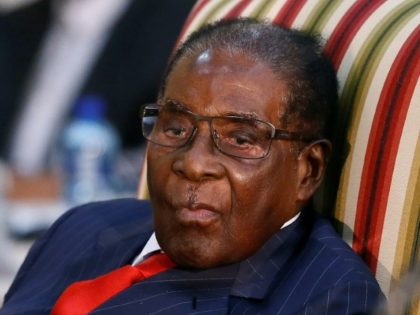Zimbabwe Lawmaker Accuses China of Plotting Coup
China may use its economic presence in Zimbabwe to overthrow President Emmerson Mnangagwa, a lawmaker from the African nation warned on Thursday.
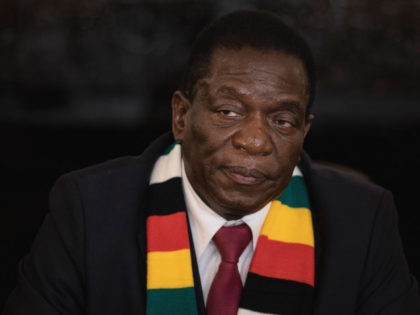
China may use its economic presence in Zimbabwe to overthrow President Emmerson Mnangagwa, a lawmaker from the African nation warned on Thursday.

The government of Zimbabwe recently completed agreements to receive over $58 million in investment grants from China during a meeting of the Chinese Communist Party’s Forum on China-Africa Cooperation (FOCAC), Zimbabwean media reported Wednesday.
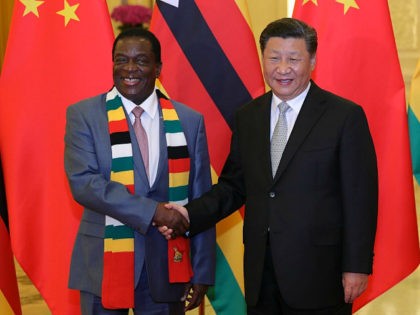
The speaker of Parliament in Zimbabwe, Jacob Mudenda, announced on Tuesday that members were henceforth banned from tweeting when the House was in session.
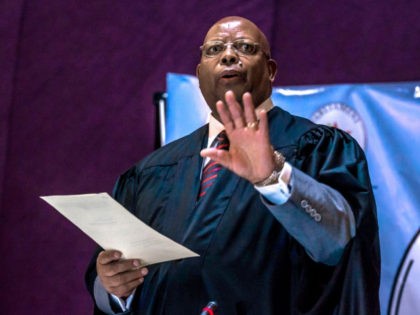
The United States on Thursday opened a remarkably large and expensive embassy in Harare, the capital of Zimbabwe, a structure described by the U.S. ambassador as a symbol of America’s commitment to the people of Zimbabwe after decades of sanctions intended to weaken the heinous regime of longtime dictator Robert Mugabe. With help from Japan, the U.S. is competing with China for influence in post-Mugabe Zimbabwe.
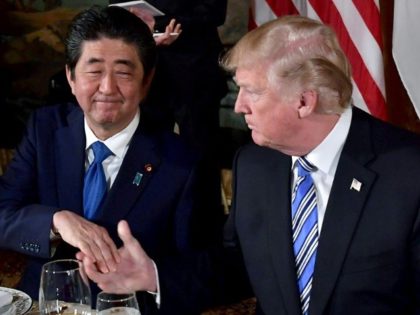
Zimbabwe President Emmerson Mnangagwa agreed on a timeline, the government announced Thursday, to exhume some of the 20,000 people believed to have been killed in Operation Gukurahundi, a 1980s attempt under former dictator Robert Mugabe to wipe out the nation’s Ndebele ethnic group.
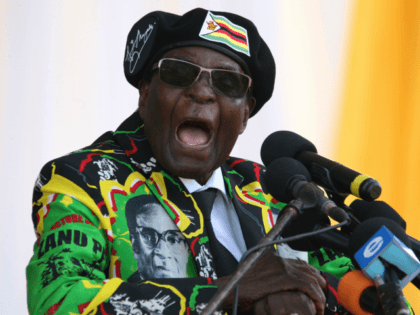
A young Zimbabwe lawmaker could face up to 20 years in jail for urging her constituents to attend widespread anti-government protests in January that led to three deaths at the hands of state security forces.
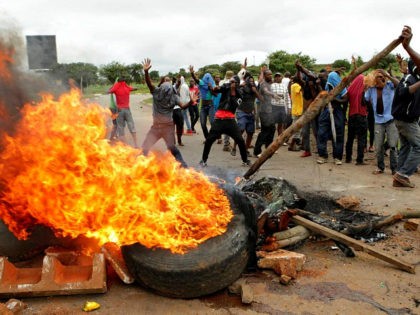
Armed soldiers in Zimbabwe stormed a private medical facility to assault and arrest wounded patients accused of participating in recent anti-government protests, a local NGO revealed over the weekend, warning of potentially “massive crimes against humanity” at the hands of the government.
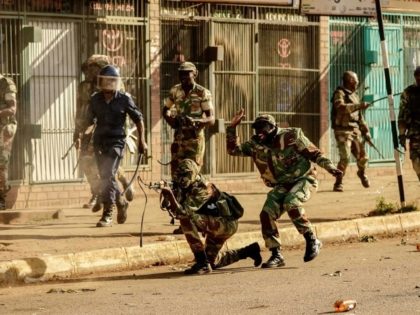
Federal police in Zimbabwe on Tuesday reportedly confirmed the arrest of “36 children” accused of participating in the recent wave of deadly violence that has plagued some parts of the African country.

Beijing reportedly launched a tourism project Tuesday as part of its Belt and Road Initiative (BRI) expected to bring at least 350 Chinese tourists each month into chaos-ridden Zimbabwe, a nation gripped by bloody unrest triggered by the government raising fuel prices to the highest in the world.
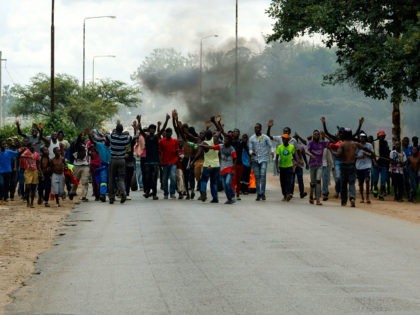
Police in Zimbabwe blocked activists representing the estimated 20,000 Ndebele tribe people killed in a 1980s genocide known as “Gukurahundi” from bringing a case to court against the current government for its role in the event on Tuesday, claiming their attempt to request a permit for their assembly was illegal.
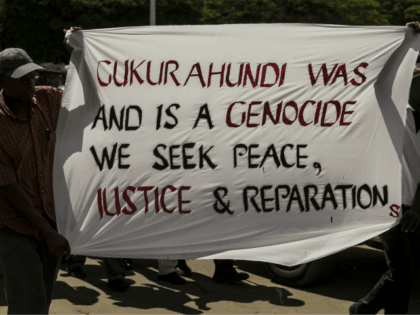
President Emmerson Mnangagwa canceled a scheduled appearance at the World Economic Forum in Davos, Switzerland, this week after a week of rioting against his government that resulted in hundreds imprisoned and rumors of an impeachment attempt potentially organized by his own party.
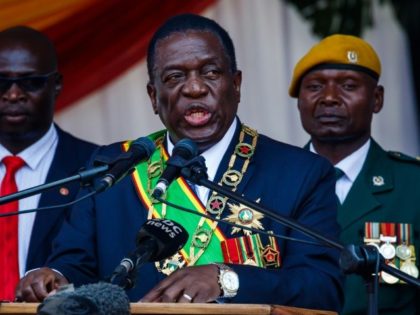
Contents: Zimbabwe returns to violence of Mugabe era with police beatings and abductions; It’s possible that Mnangagwa is changing Zimbabwe, making it worse
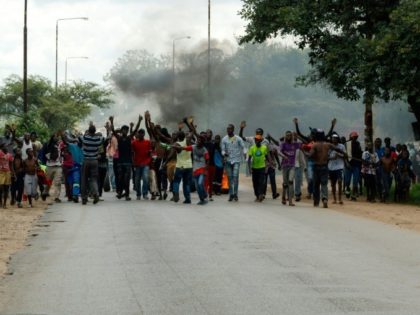
Reports suggest that at least eight people have died in protests against skyrocketing gasoline prices in Zimbabwe as of this Wednesday, which continued into the day despite President Emmerson Mnangagwa reportedly claiming the demonstrations were “fizzling out.”
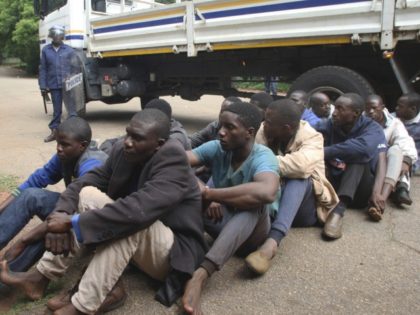
Protests against the economic crisis in Zimbabwe, which erupted Monday after President Emmerson Mnangagwa more than doubled fuel prices, reportedly prompted the government to restrict the internet over the alleged use of the social media to incite the demonstrations and sparked rampant looting in the impoverished African nation.
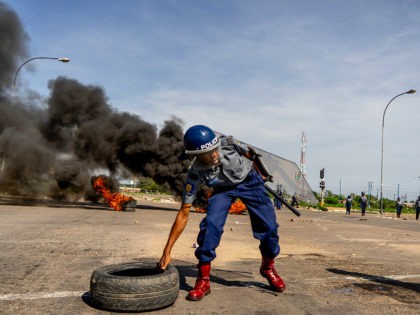
Zimbabwe’s President Emmerson Mnangagwa announced on Wednesday that, following an audit of how the nation’s agricultural lands were being used, the nation would proceed with seizing property from wealthy members of the ruling Zanu-PF party deemed to own too much of it.
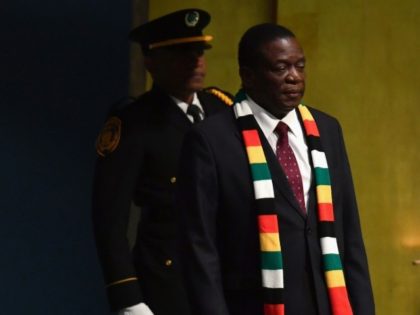
Contents: Zimbabwe proposes to compensate some white farmers whose lands were seized; Hyperinflation returns to Zimbabwe
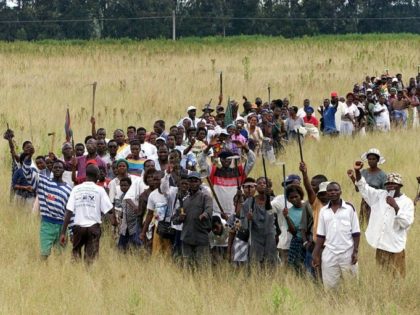
Authorities in Zimbabwe arrested an opposition lawmaker for “undermining the authority” of President Emmerson Mnangagwa, successor to dictator Robert Mugabe, after he allegedly called Mnangagwa a “dog.”
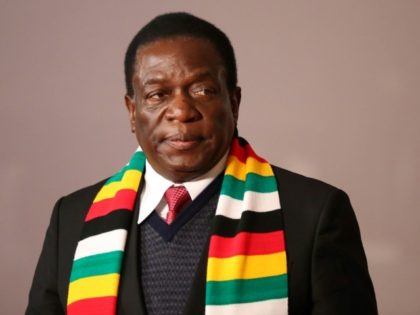
Shops in Zimbabwe have bare shelves as people, fearing a new round of hyperinflation like the one in the 2000s decade, are panic buying beer, bread, cooking oil, and other essentials.
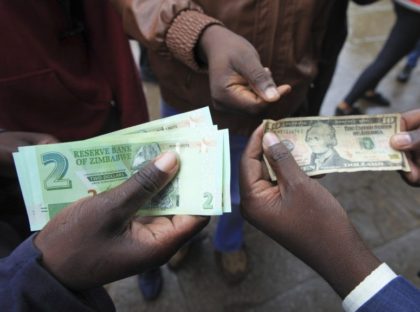
President Emmerson Mnangagwa of Zimbabwe addressed the U.N. General Assembly on Wednesday, eager to promote the most urgent theme of the first administration after the fall of dictator Robert Mugabe: “Zimbabwe is open for business.” He also addressed allegations of skulduggery in the recent election that secured his full term in office.

Zimbabwean President Emmerson Mnangagwa on Tuesday gave his first State of the Nation speech since winning a full term in office in July. Opposition lawmakers from the Movement for Democratic Change (MDC) party heckled Mnangagwa’s speech and then walked out in protest.

The impoverished government of Zimbabwe reportedly chartered a medical flight to Singapore on Sunday for deposed dictator Robert Mugabe, the kleptocrat and crackpot socialist responsible for impoverishing the country. Meanwhile, Zimbabweans are told their government lacks the funds to deal with an outbreak of cholera.
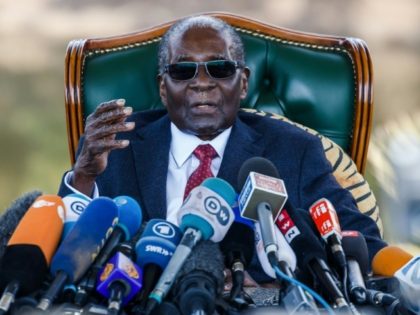
At least 25 people have died and nearly 4,000 diagnosed with cholera amid a growing outbreak in the Zimbabwean capital of Harare, local media reported Friday.
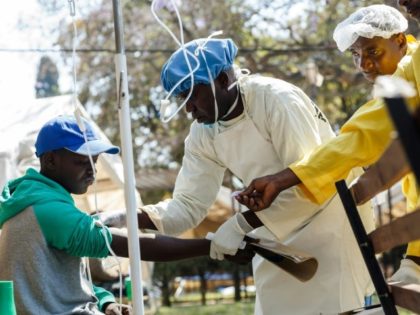
Tendai Biti, former finance minister of Zimbabwe and a leader in the opposition Movement for Democrat Change (MDC) party, was arrested on the Zambian border Wednesday. Biti is one of the MDC officials who has declared challenger Nelson Chamisa the true winner of the recent presidential election, which secured a full term in office for interim President Emmerson Mnangagwa.
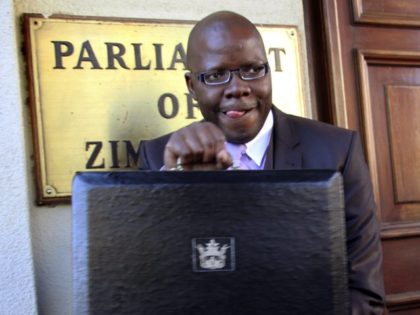
Supporters of defeated Zimbabwean presidential candidate Nelson Chamisa accused U.K. Ambassador Catriona Laing of currying favor with President Emmerson Mnangagwa by wearing his signature scarf at a Downing Street event. The opposition has accused Mnangagwa of rigging the election to become the first full-term president since the fall of dictator Robert Mugabe.
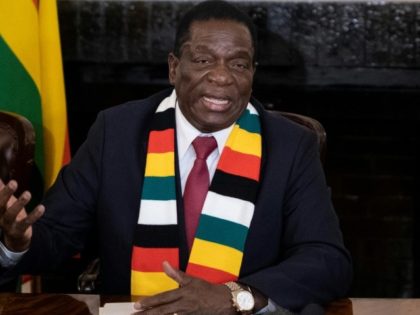
Contents: Zimbabwe’s post-election violence raises concerns about economy; South Africa announces plans for unpaid confiscation of white-owned farms.
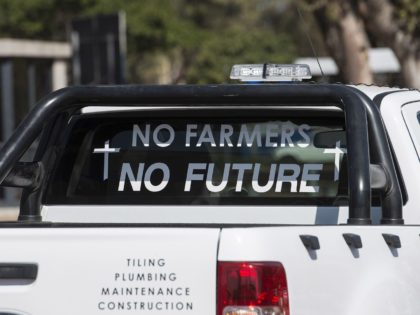
The Zimbabwe Electoral Commission released the results of the presidential election late on Thursday and declared incumbent interim President Emmerson Mnangagwa the winner by just enough to avoid a runoff against challenger Nelson Chamisa. Chamisa’s Movement for Democratic Change (MDC) party immediately rejected the results as “fraudulent” and accused Mnangagwa of staging a “coup.”

Jeff Flake seemed unconcerned about the killing of six protesters by the Zimbabwean military, or whether the election was free and fair.
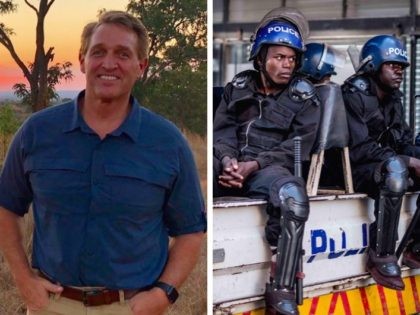
The government of interim President Emmerson Mnangagwa cleared the streets of Harare with troops and police on Thursday, turning the capital city into a “ghost town,” as several foreign media outlets described it.
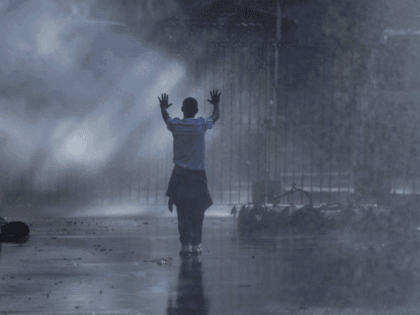
The air of cautious optimism surrounding Zimbabwe’s first presidential election since the fall of dictator Robert Mugabe was shattered with violence on Wednesday as allegations of vote rigging flew, property was vandalized, riot police and military forces were deployed, and gunshots rang out in the streets of the capital.
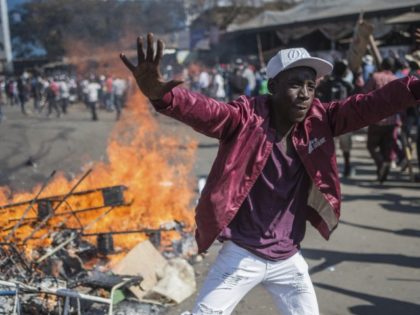
Zimbabwe’s national election commission began publishing the results of the nation’s first elections since the removal of dictator Robert Mugabe on Tuesday, as both presidential contenders expressed confidence on social media that they would prevail.
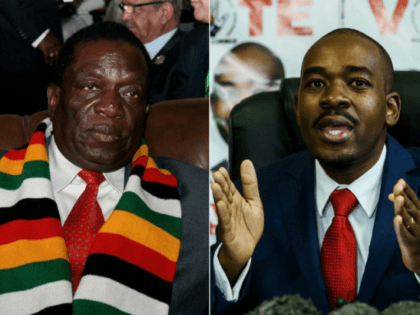
Monday marks the first presidential election in Zimbabwe since longtime dictator Robert Mugabe was ousted in a surprisingly soft November 2017 coup. The primary challenger to incumbent interim President Emmerson Mnangagwa, Nelson Chamisa of the Movement for Democrat Change (MDC), claims his party’s voters are being suppressed and Mnangagwa can only win if the election is rigged.
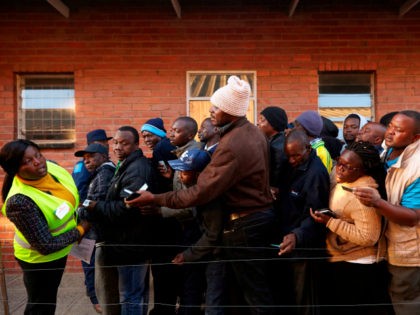
Contents: Operation Gukurahundi genocide becomes major Zimbabwe election issue; Robert Mugabe endorses the opposition candidate
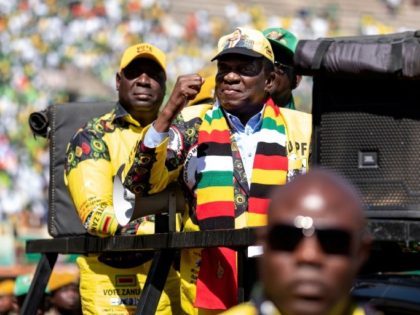
Zimbabwean police on Wednesday announced the arrest of two suspects in connection with the June 23 grenade attack on an election rally held by the ruling Zanu-PF party. The bombing has been described as an attempt to assassinate interim President Emmerson Mnangagwa, who is running for a full term in the July 30 election.
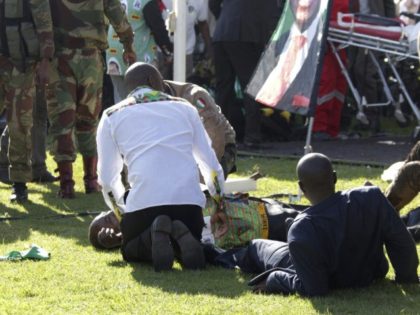
Contents: Zimbabwe president Mnangagwa blames Grace Mugabe for bomb blast at rally; Zimbabwe elections overshadowed by the country’s dark past
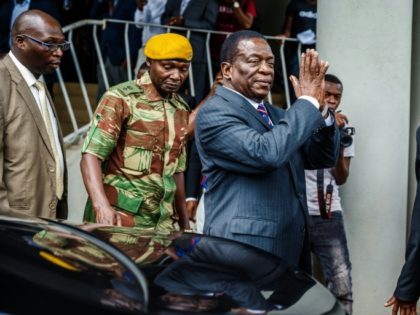
A human rights group in Zimbabwe sounded the alarm this week on the case of 36-year-old prison guard John Mahlabera, facing a disciplinary hearing for allegedly expressing “disloyalty” to President Emmerson Mnangagwa in a tweet.
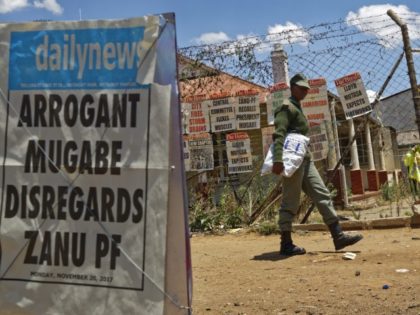
Zimbabwe’s interim President Emmerson “the Crocodile” Mnangagwa announced on Wednesday that elections will be held on Monday, July 30 for both the presidency and legislature. It will be the first time in four decades an election has been held without dictator Robert Mugabe on the ballot.
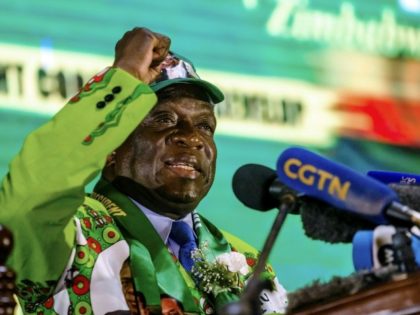
Zimbabwean President Emmerson Mnangagwa traveled to Beijing this week for a meeting with Chinese President Xi Jinping. Mnangagwa thanked Xi for his support, promised to strengthen Zimbabwe’s ties with China, and pledged to implement ‘Xi Jinping Thought’ in Zimbabwe as quickly as possible.
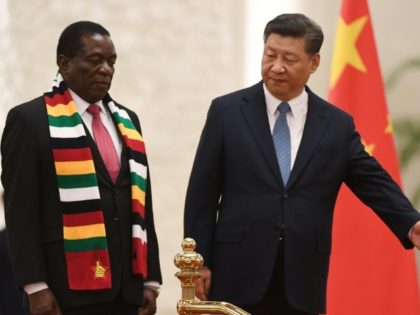
Grace Mugabe, the 52-year-old wife of 94-year-old deposed dictator Robert Mugabe of Zimbabwe, reported on Thursday that a swarm of some illegal miners overran her estate north of Harare to dig for gold and vandalize her property. She claimed the mob verbally abused her when she confronted them and demanded they leave. On Sunday, the Zimbabwean government accused Mugabe of fabricating the incident and said she was actually involved in a legal dispute with several mining syndicates.
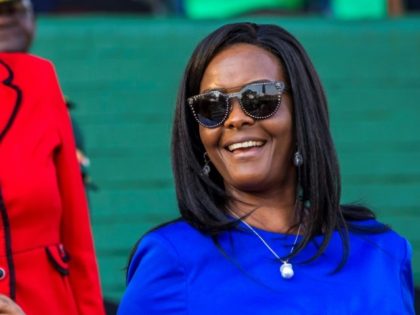
In an interview with a Zimbabwean newspaper over the weekend, ousted dictator Robert Mugabe complained that his friends in South Africa “could have done much more” to save him from the coup that ended his four decades of rule.
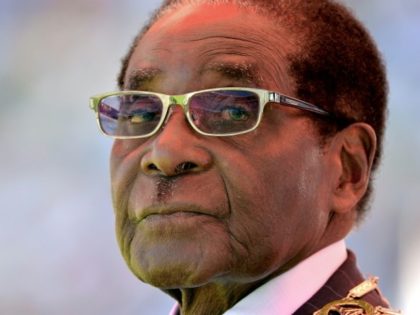
A few days after declaring he was removed from power in an illegal coup, Zimbabwe’s former dictator Robert Mugabe expressed a desire to meet with his successor, President Emmerson Mnangagwa, to help him “return to legitimacy.”
